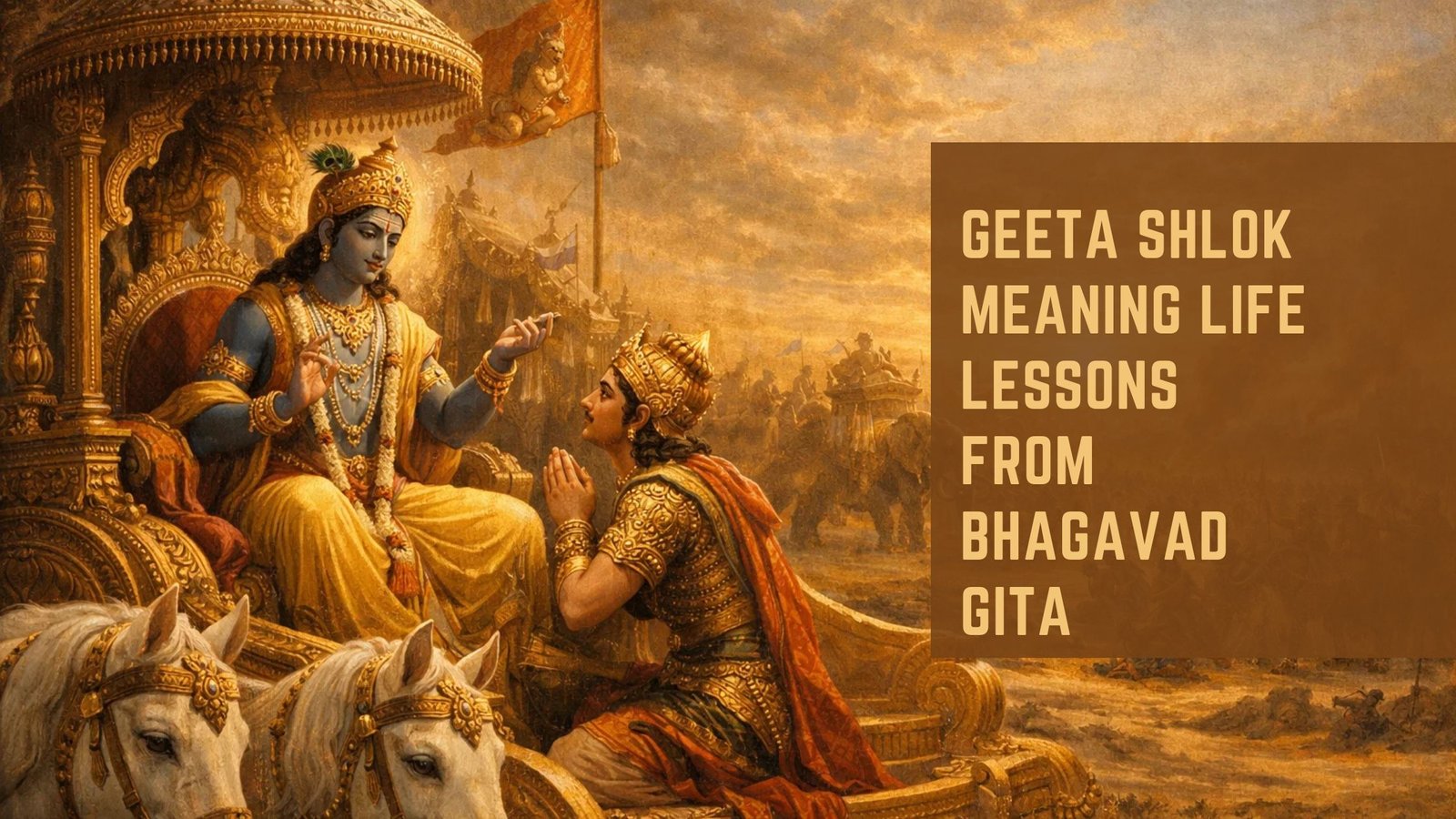The Bhagavad Gita, often referred to simply as the Gita, is a 700-verse Hindu scripture that is part of the Indian epic Mahabharata. It is a dialogue between Prince Arjuna and Lord Krishna, who serves as his charioteer. This sacred text is not merely a religious scripture; it is a philosophical treatise that addresses the moral and ethical dilemmas faced by individuals in their lives.
The Gita delves into various themes such as duty, righteousness, and the nature of reality, making it a timeless guide for those seeking wisdom and understanding in a complex world. The context of the Gita is set on the battlefield of Kurukshetra, where Arjuna is torn between his duty as a warrior and his moral qualms about fighting against his own kin. This internal conflict serves as a backdrop for Krishna’s teachings, which encompass a wide range of spiritual and philosophical concepts.
The Gita’s teachings transcend cultural and temporal boundaries, offering insights that resonate with individuals from diverse backgrounds. As readers engage with its verses, they are invited to explore profound questions about existence, purpose, and the nature of the self.
Key Takeaways
- The Bhagavad Gita is a sacred Hindu scripture that imparts spiritual wisdom and guidance for living a fulfilling life.
- The concept of the “Power Within” refers to the innate strength, wisdom, and potential that resides within each individual.
- Bhagavad Gita 9:23 emphasizes the equal and universal love of the divine for all beings, regardless of their actions or beliefs.
- The message of Bhagavad Gita 9:23 encourages individuals to surrender to the divine and trust in the inherent goodness of the universe.
- Applying the teachings of Bhagavad Gita 9:23 to daily life involves cultivating a sense of gratitude, compassion, and humility in all interactions and experiences.
Understanding the concept of the “Power Within”
The concept of the “Power Within” is central to the teachings of the Bhagavad Gita. It refers to the innate potential and strength that resides within every individual, waiting to be harnessed and expressed. This power is not merely physical; it encompasses mental, emotional, and spiritual dimensions.
The Gita emphasizes that recognizing and cultivating this inner strength is essential for personal growth and fulfillment. By tapping into this power, individuals can navigate life’s challenges with resilience and clarity. Krishna’s guidance to Arjuna highlights the importance of self-awareness in unlocking this inner potential.
This journey of self-discovery involves introspection and a willingness to confront one’s fears and limitations. As individuals learn to connect with their inner selves, they begin to realize that they possess the ability to shape their destinies and overcome obstacles that may seem insurmountable.
Exploring the significance of Bhagavad Gita 9:23

Verse 9:23 of the Bhagavad Gita holds profound significance within the broader context of its teachings. In this verse, Krishna states that those who offer devotion to Him with faith, even if they worship other deities or follow different paths, will ultimately reach Him. This verse encapsulates the essence of inclusivity in spiritual practice, emphasizing that sincere devotion transcends ritualistic boundaries.
It reassures seekers that their efforts will not go unnoticed, regardless of their chosen path. This verse also highlights the importance of intention in spiritual pursuits. Krishna’s message suggests that it is not merely the external acts of worship that matter but the sincerity and faith behind them. This perspective encourages individuals to cultivate a personal relationship with the divine, fostering a sense of connection that goes beyond dogma or tradition. By recognizing that all paths can lead to the same ultimate truth, individuals are empowered to explore their spirituality in ways that resonate with their unique experiences and beliefs.
Unpacking the message of Bhagavad Gita 9:23
| Verse | Message |
|---|---|
| 9:23 | The Bhagavad Gita emphasizes the importance of devotion and faith in achieving success and fulfillment in life. |
The message of Bhagavad Gita 9:23 invites individuals to reflect on their understanding of devotion and spirituality. It challenges conventional notions of worship by asserting that true devotion is rooted in love and faith rather than mere adherence to rituals. Krishna’s assurance that all sincere seekers will find their way to Him serves as a reminder that the divine is accessible to everyone, regardless of their background or beliefs.
Moreover, this verse encourages individuals to embrace diversity in spiritual practices. It acknowledges that people may approach the divine through various forms and expressions, yet all paths can lead to a deeper understanding of truth. This inclusivity fosters a sense of unity among seekers, promoting respect for different traditions while reinforcing the idea that love and devotion are universal values.
By unpacking this message, individuals can cultivate a more compassionate and open-minded approach to spirituality.
Applying the teachings of Bhagavad Gita 9:23 to daily life
The teachings of Bhagavad Gita 9:23 can be seamlessly integrated into daily life, offering guidance on how to navigate challenges with grace and purpose. One practical application is the cultivation of an attitude of devotion in everyday actions. Whether it is through work, relationships, or personal pursuits, individuals can infuse their activities with intention and mindfulness.
By approaching each task with a sense of reverence and dedication, they align themselves with the principles outlined in the Gita. Additionally, embracing inclusivity in spiritual practice can enhance interpersonal relationships. Recognizing that everyone has their unique journey fosters empathy and understanding among individuals with differing beliefs.
This perspective encourages open dialogue about spirituality, allowing for shared experiences and insights that enrich personal growth. By embodying the teachings of Bhagavad Gita 9:23 in daily interactions, individuals contribute to a more harmonious and compassionate world.
Cultivating the “Power Within” through spiritual practices

Cultivating the “Power Within” requires intentional spiritual practices that nurture self-awareness and inner strength. The Bhagavad Gita offers various methods for individuals to connect with their inner selves, including meditation, selfless service (seva), and devotion (bhakti). Meditation serves as a powerful tool for quieting the mind and accessing deeper layers of consciousness.
Through regular practice, individuals can develop clarity and insight into their thoughts and emotions, enabling them to respond to life’s challenges with equanimity. Selfless service is another vital aspect of cultivating inner power. Engaging in acts of kindness without expecting anything in return fosters a sense of connection with others and reinforces one’s purpose in life.
This practice aligns with Krishna’s teachings on duty (dharma) and encourages individuals to act for the greater good rather than solely for personal gain. By integrating selfless service into their lives, individuals can experience a profound sense of fulfillment while simultaneously unlocking their inner potential.
Overcoming obstacles to unlocking the “Power Within”
Despite the inherent potential within each individual, various obstacles can hinder the process of unlocking this power. Fear, self-doubt, and societal conditioning often create barriers that prevent individuals from fully embracing their capabilities. The Bhagavad Gita addresses these challenges by encouraging individuals to confront their fears head-on and cultivate resilience through self-awareness.
Moreover, external influences such as negative relationships or societal expectations can further complicate one’s journey toward self-discovery. The Gita teaches that maintaining a strong sense of purpose and aligning actions with one’s values are essential for overcoming these challenges.
By surrounding themselves with supportive communities and engaging in practices that reinforce their inner strength, individuals can navigate obstacles more effectively and unlock their true potential.
Embracing the transformative potential of Bhagavad Gita 9:23
Embracing the transformative potential of Bhagavad Gita 9:23 involves recognizing its relevance in contemporary life. The verse serves as a reminder that spirituality is not confined to specific rituals or beliefs; rather, it is an expression of love and devotion that transcends boundaries. By internalizing this message, individuals can cultivate a more profound connection with themselves and others while fostering an inclusive approach to spirituality.
The transformative power of this verse lies in its ability to inspire individuals to embark on their unique spiritual journeys with confidence and authenticity. As they embrace their inner power and express devotion in their own ways, they contribute to a collective awakening that promotes unity and understanding among diverse communities. Ultimately, by embodying the teachings of Bhagavad Gita 9:23, individuals can experience profound personal transformation while positively impacting those around them.
In conclusion, the Bhagavad Gita offers timeless wisdom that resonates deeply with seekers on their spiritual journeys. Through its teachings on the “Power Within” and the significance of devotion, individuals are encouraged to explore their inner landscapes while embracing diversity in spiritual practices. By applying these teachings to daily life and overcoming obstacles along the way, they can unlock their true potential and experience transformative growth.
The message of Bhagavad Gita 9:23 serves as a guiding light for those seeking connection, purpose, and fulfillment in an ever-evolving world.
In a related article to Bhagavad Gita Chapter 9 Verse 23, the timeless wisdom of the Gita is explored in the context of modern life. The verse emphasizes the importance of devotion and faith in achieving success and fulfillment in life. This article delves into how the teachings of the Gita can be applied to navigate the challenges of contemporary society and find inner peace and purpose.
FAQs
What is the significance of Bhagavad Gita chapter 9 verse 23?
Bhagavad Gita chapter 9 verse 23 emphasizes the universal nature of devotion and how it is accessible to all, regardless of social status or background.
What does Bhagavad Gita chapter 9 verse 23 teach?
The verse teaches that anyone, whether they be a woman, a merchant, a laborer, or even a person of low birth, can attain the highest spiritual goal through devotion to the Supreme Being.
How does Bhagavad Gita chapter 9 verse 23 promote inclusivity?
The verse promotes inclusivity by emphasizing that devotion to the Supreme Being is not limited by social status, gender, or occupation, and that anyone can achieve spiritual fulfillment through devotion.
What is the broader context of Bhagavad Gita chapter 9 verse 23?
Bhagavad Gita chapter 9 verse 23 is part of a larger discourse between Lord Krishna and Arjuna, where Lord Krishna imparts spiritual wisdom and guidance to Arjuna on the battlefield of Kurukshetra.














